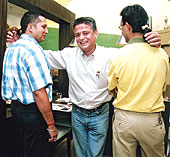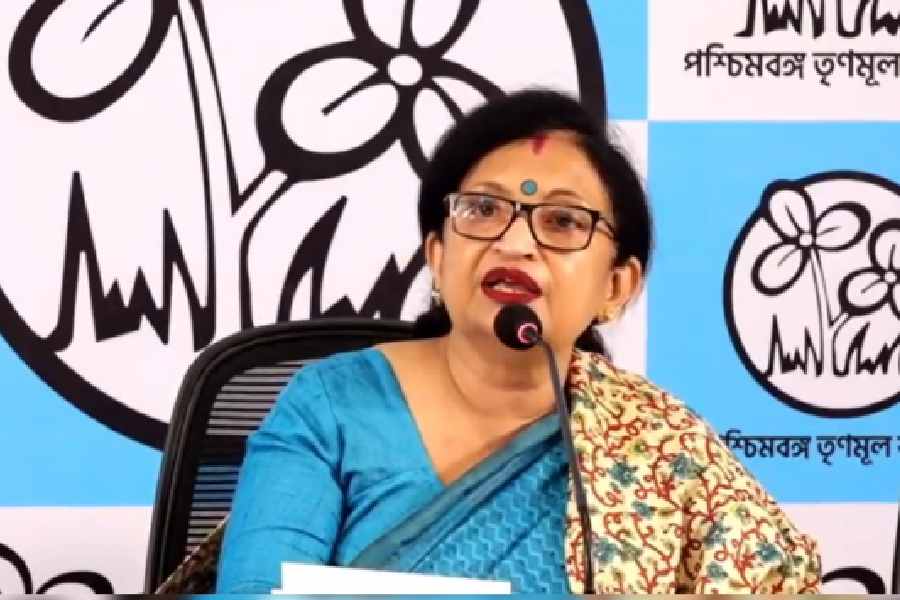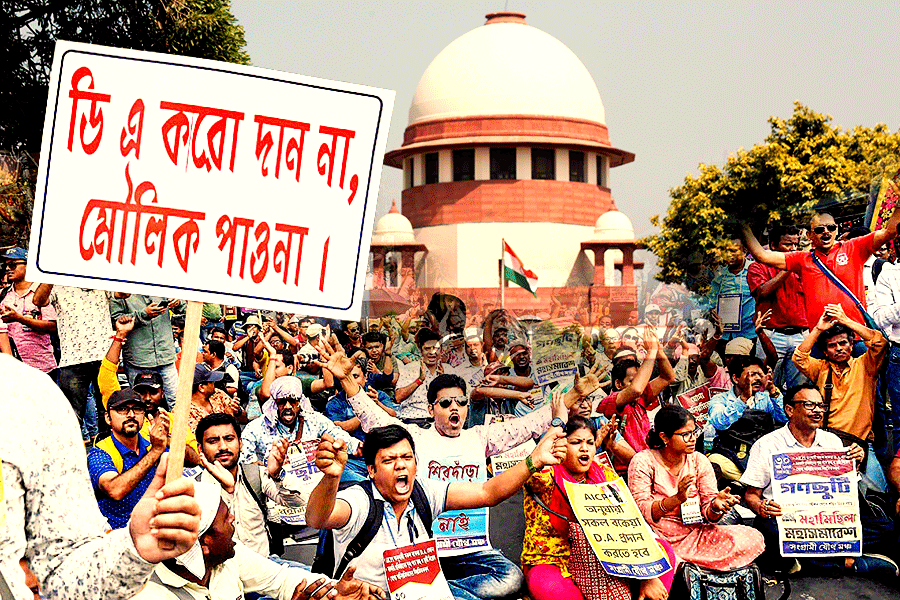 |
 |
 |
 |
 |
 |
 |
 |
 |
| (From top): Patu Keswani managing director and CEO of The Lemon Tree Company (centre) that makes it mandatory for senior male executives to sport pony-tails; the lobby of a Fortune Park hotel and Mandeep S. Lamba, president, Fortune Park Hotels; the Choice hotel in Corbett and Sandeep Gupta, executive director, Choice Hotels; the Bangalore indiOne; Uttam Dave, president and CEO, InterGlobe Hotels; guests chill out at the pool at a Sarovar Park Plaza property and Ajay Bakaya, executive director, Sarovar Park Plaza Hotels & Resorts |
Not long ago, getting good hotel accommodation in India at a wallet-friendly price was a rare event. No longer so. New hotels are springing up, catering to that brand of traveller known as ?price-sensitive? in the trade, who wants comfort and, most importantly, value. Mumbai businessman Sandeep Taneja travels to Tirupati at least twice yearly to pay obeisance to Lord Balaji. In the past, ?decent? accommodation at an affordable price was thin on the ground, but these days he checks in at Fortune Kences Hotel managed by hotel giant ITC. It offers him good service, a well-appointed room and the chain?s signature coffeeshop, Orchid, where he always grabs a bite. When Taneja checks out, he pays just Rs 1,299 for a night.
Taneja?s official travels also take him to Gurgaon where he checks in at the Lemon Tree ? another ?budget hotel? that offers him a choice of two restaurants, fitness centre and even video conferencing facilities. At Rs 1,400 a night, Taneja doesn?t expect too many frills like heavy woodwork, bathtubs or carpets. In fact, he likes the hotel?s funky business approach. The senior male executives all sport pony-tails tied neatly with yellow bows while the artwork enlivening the corridors are ? no not paintings ? but rib-tickling jokes. Smiles Patu Keswani, managing director and CEO, The Lemon Tree Hotel Company, ?Our philosophy is to tap young Indians on the move while providing 80 per cent of a five-star experience at 25 per cent of the price.? Can?t argue with that philosophy!
Welcome to the world of ?value? hotels that are slowly but surely creating a buzz in Indian hoteliering. On your next trip to Bangalore, check out indiOne. If you head to Vailankanni, you could opt to stay in a Choice Hotel. And if you travel to Amritsar to visit the Golden temple, you can put up at the Hotel Ritz Plaza. If work takes you to Indore, you might be well-advised to stay at the Fortune Landmark Hotel. The cost is likely to be anywhere between Rs 999 and Rs 2,500.
?The mid-market and budget segment of hotels is poised to become the hotel industry?s backbone,? says Sandeep Gupta, executive director, Choice Hotels. The chain first made its foray into the mid-price hotel category in 1987 with its franchise chain of Quality Inn and Comfort Inn brands.
India?s travel industry has been talking about mid-market hotels since the ?80s when the only choices were hugely-expensive five-star, luxury hotels at the top end and budget and guest houses of dubious standards at the lower end. The ?90s witnessed start of growth in the mid-priced category. ?There?s clear emergence of a mid-market category ? and importantly, hotels are meeting the challenge in an organised way,? says Uttam Dave, president and CEO, InterGlobe Hotels.
Recognising this segment?s potential, premier hospitality chains and hotel companies have got their act together to set up accommodation run on tight budgets to cater to mid- and upper-middle level businessmen and holidaymakers. With as many as 30 million domestic travellers on the trot every year, it?s no surprise mid-market and budget hotels are getting into the swing of things.
Says Sheila Nair, Chief Operating Officer, Roots Corp, a wholly owned subsidiary of the Indian Hotels Co Ltd (IHCL) that?s behind indiOne Hotels, ?In the last few years, the dynamics of the hotel industry has changed and smart basic hotels have emerged as a compelling business opportunity.?
The roster of players in the value-pricing arena is impressive. Choice Hotels were the first to build brands through their franchise hotels way back in the 80s. Today, the chain boasts a clutch of 35 hotels scattered across India ? in Mumbai, Chennai, Ahmedabad, Hyderabad, Pune, Bangalore and Calcutta.
Now, Gupta is set to launch a Sleep Inn in Delhi by the year-end. This will be Choice?s first budget category, limited service hotel in the country. Gupta is also scouting for a partner to develop at least 10 Sleep Inns in the next few years.
More franchise hotels come courtesy Sarovar Park Plaza Hotels & Resorts that entered this field a decade ago and today manages some 30 properties in India and overseas. The group?s affiliation with Carlson Hospitality Wordwide makes it master franchiser of the Park Plaza and the Park Inn brands in India. Soon it will foray into the budget segment with Hometel hotels, the first of which will open in Bangalore by year end. Metros and mini metros will follow suit with tariffs ranging between Rs 1,200 to Rs 2,000.
Then look at ITC?s Fortune Park hotels now located in 13 destinations with an inventory of 1,068 rooms. It has just opened a 15th hotel in Gurgaon and two more hotels will open in Vijayawada and another in Ludhiana this year. The chain has done some fine-tuning, upgraded its latest property to a Fortune Select Global hotel with room rates varying between Rs 4,950 and Rs 5,450. This is about 25 per cent more than the average rates at other Fortune Park hotels which are priced between Rs 1,500 to Rs 3,000.
Dave, meanwhile, plans to build his own hotels and the first three will see the light of day in Bangalore, Gurgaon and Pune before the end of 2006. Dave has tied up with French hospitality giant, Accor Hotels, to set up shop and is now scouting for sites in Jaipur, Mumbai and Chennai. ?The plan is to have multiple hotels in each metro,? he explains. Tariffs will range from Rs 1,800 to Rs 2,200.
But for those looking for accommodation that?s even cheaper, indiOne is the way to go. Roots Corporation?s first indiOne in Bangalore has rooms available for under Rs 1,000 (book on-line and the tariff gets lower). Now, having tested the waters in Bangalore, Roots intends to take the number of hotels in operation to 10 by end-2006.
And there?s more good news for those seeking budget class accommodation. After setting up the first 49-room Lemon Tree hotel in Gurgaon last year, the chain opened the Lemon Tree City Centre, also in Gurgaon, earlier this year. Patu Keswani prefers to be located close to the city?s business hub. So Lemon Tree will open in Rajiv Gandhi Infotech Park in Pune next year and the Chennai hotel, next to the software centre Tidel Park I, will be launched in 2007.
So how do hotel chains identify locations? They simply gauge the potential of the market and the peak seasons for the destinations. Business in metros and mini metros is brisk, while typical tourist destinations fare best in holiday seasons.
So what can travellers expect during their stay at a typical mid-priced property? Uttam Dave explains the philosophy ruling the category, ?Mid-market is all about value pricing, quality accommodation, professional service, hygiene, complete security and amenities that should remind travellers of fancier hotels.?
The hotels boast modern facilities with well-appointed rooms. Each room is fitted with electronic locks and a flat-screen television, a mini-fridge, tea/coffee maker can be taken for granted. The hotels also offer meeting rooms, signature restaurants to be found in every hotel of the chain, conference halls, gyms, cyber caf?s, digital safe deposit boxes and wi-fi connectivity in public areas and individual rooms. So like any other 5-star hotel, booking a room on-line is possible ? even in some of the most off-beat locations that you can imagine.
Unlike upscale luxury hotels, mid-market hotels operate on a tight financial leash. Ajay Bakaya, executive director, Sarovar Park Plaza Hotels & Resorts, believes the mid-market category has the advantages of lower fixed costs compared to luxury hotels. Ideally, this category of hotels should be launched with ?limited input costs,? to be viable. Costs to set up shop can range from Rs 10 lakh to 36 lakh per room ? depending mainly on the cost of the land.
But despite the big market, it can be tough getting started. Shyam Suri, secretary general, Federation of Hotels & Restaurants Association of India explains, ?Barriers to entry include getting approval for hotels, availability of suitable sites and huge ? and escalating ? land costs.?
This is holding up development in this segment even though as Bayaka says, ?There?s a dire need for many more such properties in metros, mini-metros and small towns.?
Demand is booming in the mid-market and budget category, Suri explains, thanks to the rise in disposable incomes which means that there?s more money to burn on leisure travel. With affordable air travel now possible on low-cost carriers, Indians finally are going places for a holiday.
Mandeep S. Lamba, president, Fortune Park Hotels, adds, ?Economic liberalisation and increased global interest in India have led to more domestic business travel, resulting in mid-market spending.?
And if occupancy rates are anything to go by, hoteliers must be laughing all the way to the bank. Since its launch in June 2004, the first indiOne hotel in Bangalore has posted average occupancy of over 85 per cent. Choice Hotels registered 80 per cent occupancy in metro hotels and 70 per cent in resort hotels. Lemon Tree in Gurgaon notched 85 per cent through the year. Fortune hotels in Madurai and Tirupati logged 65 per cent occupancy and metro hotels touched 80 per cent. Those are great numbers for entrants. And existing players now are going on an expansion spree.
For instance, Fortune Hotels are being planned in Mumbai, Pune and Kerala, Sarovar Park Plaza is opening Park Inns in Jodhpur, Ranchi, Badrinath and Park Plazas in Mumbai, Delhi and Pondicherry. By the end of next year indiOne hotels will open their doors in Pune, Nasik, Mysore, Haridwar, Panjim, Bhubhaneshwar, Varanasi, Trivandrum, Jamshedpur and Durgapur.
In keeping with the company?s target of marking their presence in 31 cities in the next seven years, Keswani is negotiating to set up Lemon Tree hotels in Bangalore, Hyderabad, Faridabad. Hotels in Chennai, Pune, Delhi and Goa will be operational within the next two years.
As hotels mushroom, Suri says domestic tourism and related sectors will get a shot in the arm. Dave adds, ?After a lull of four years, the hotel industry is witnessing a resurgence.? So it?s time to get packed for what seems to be a win-win situation all around.
Photographs by Rupinder Sharma










